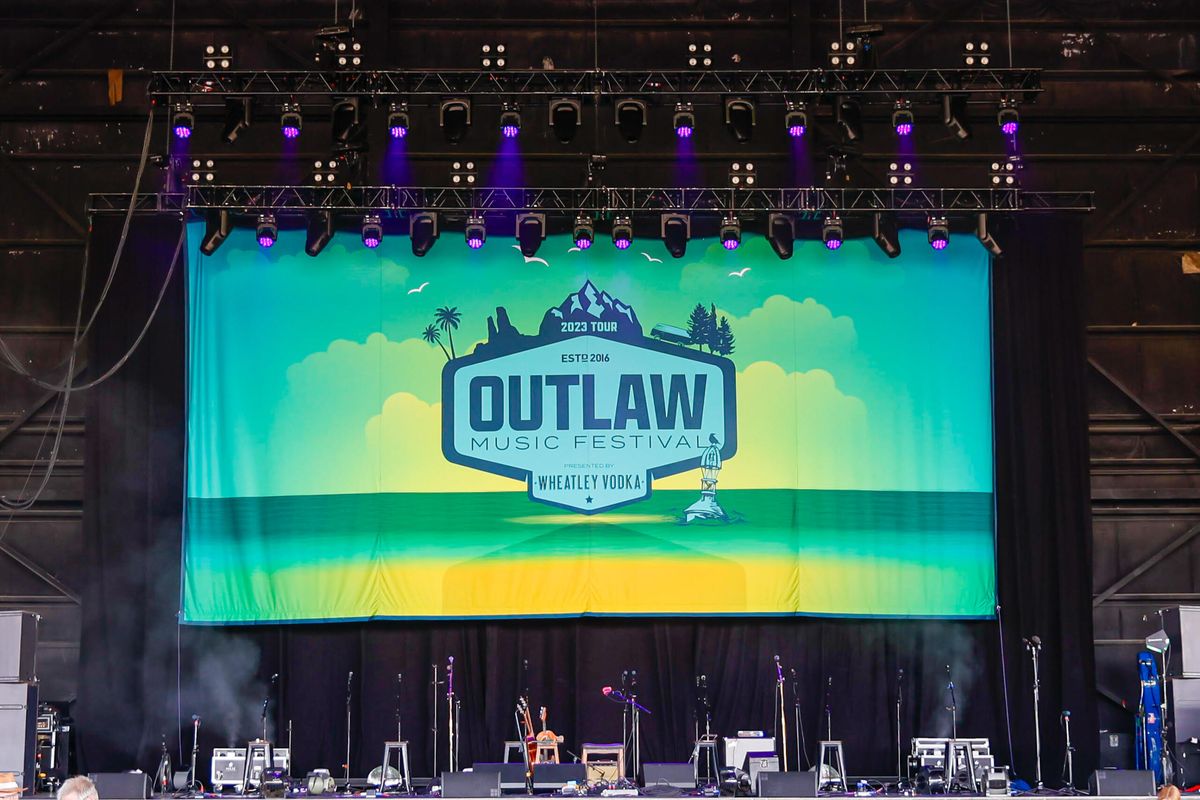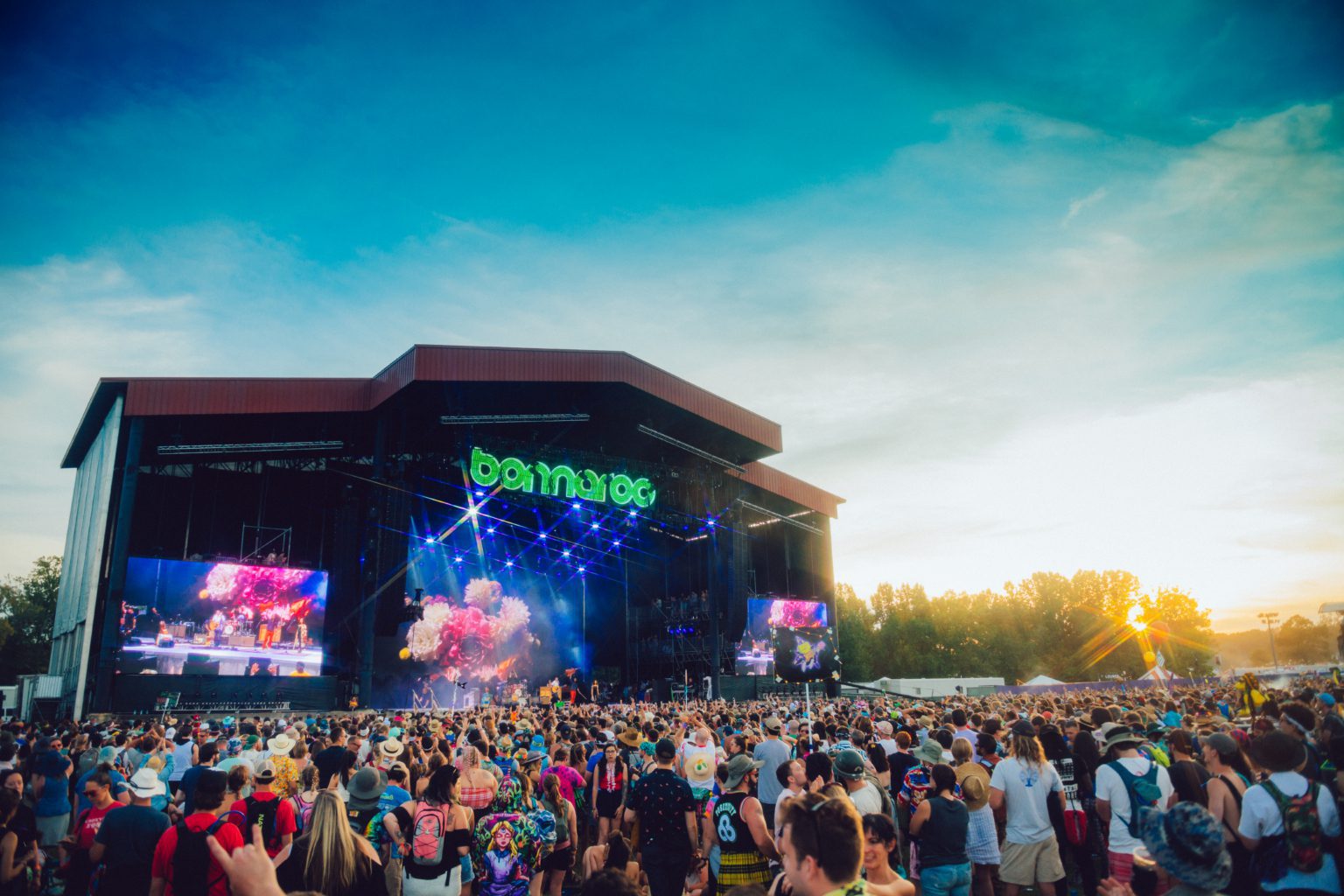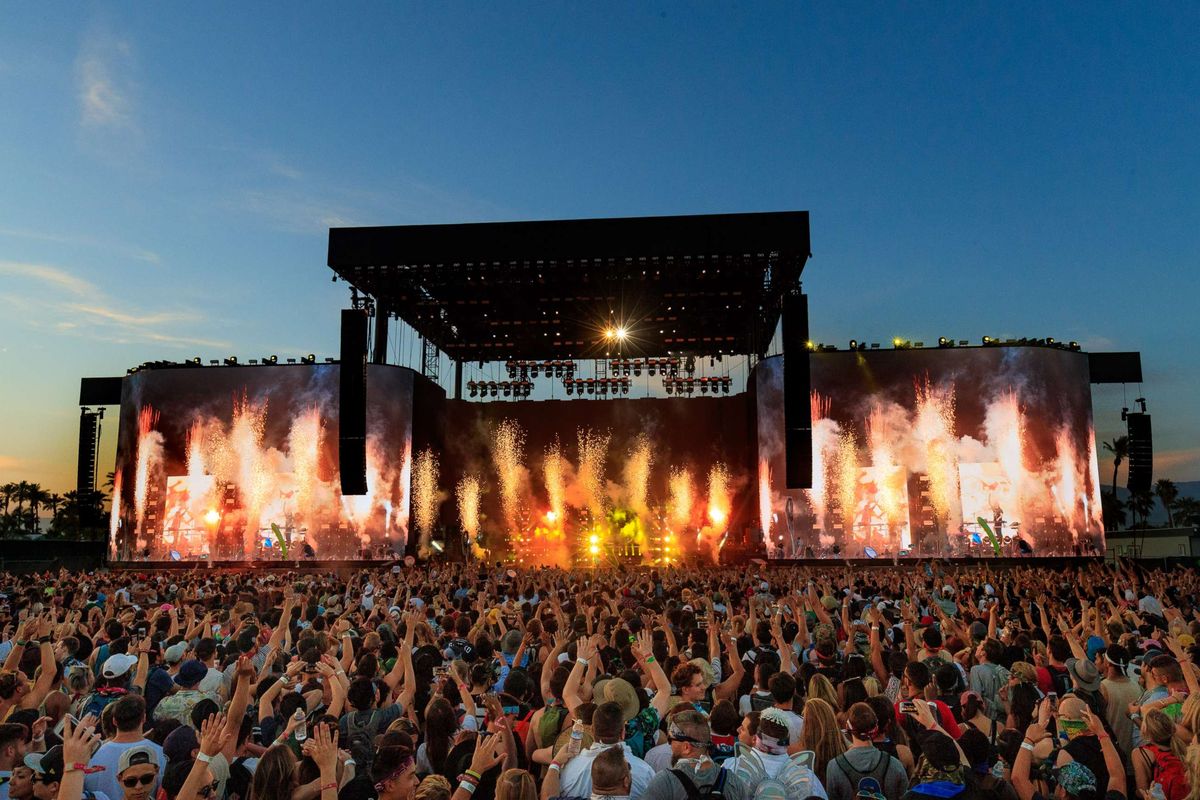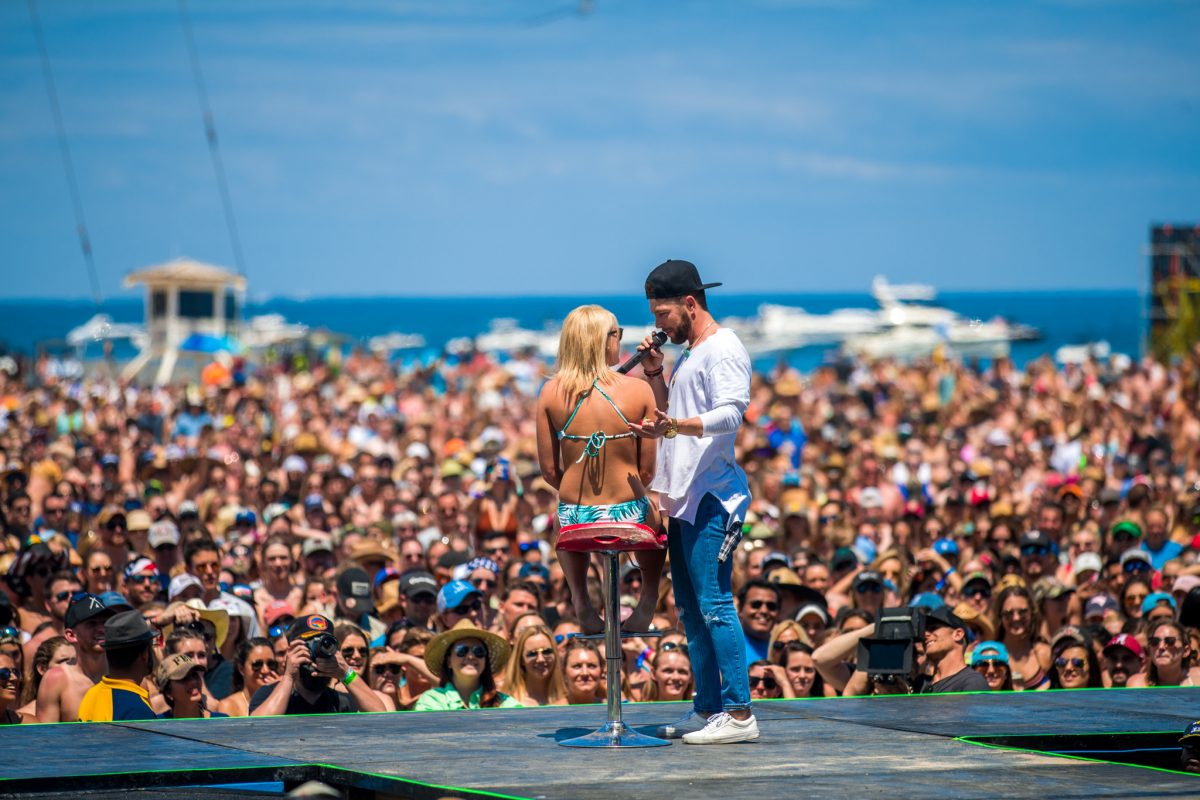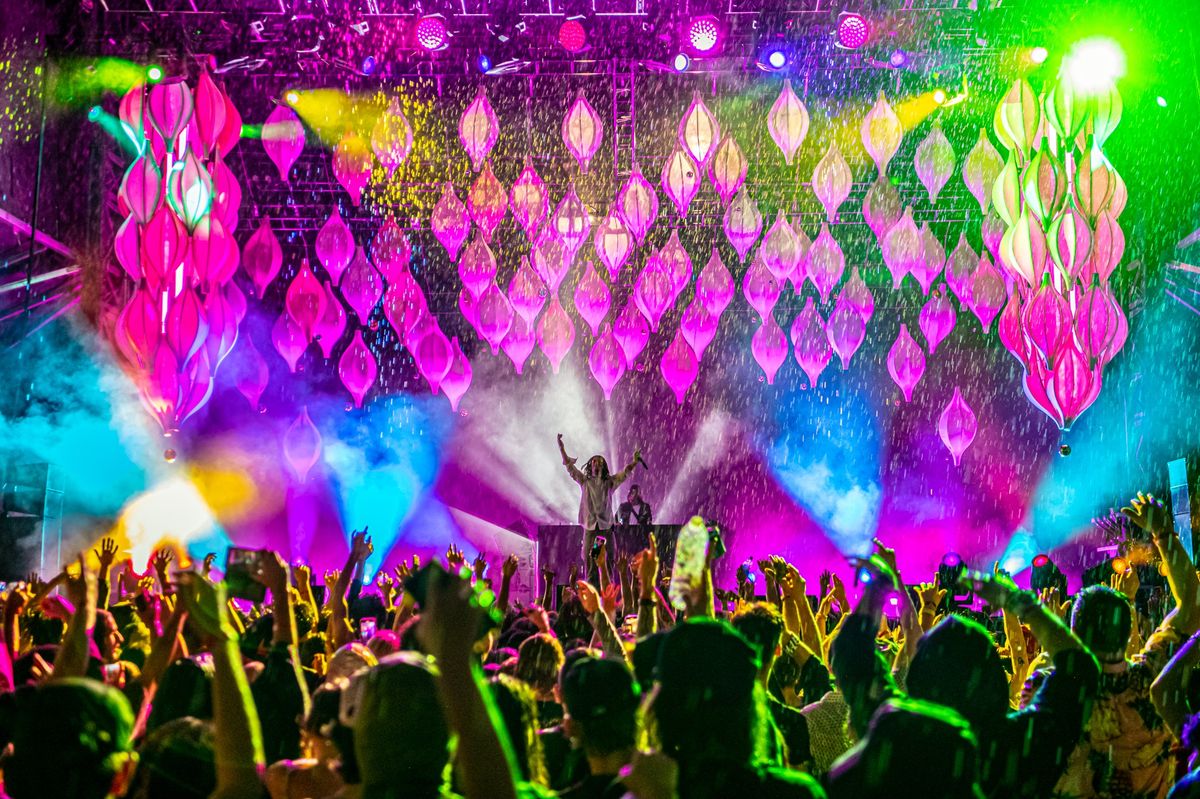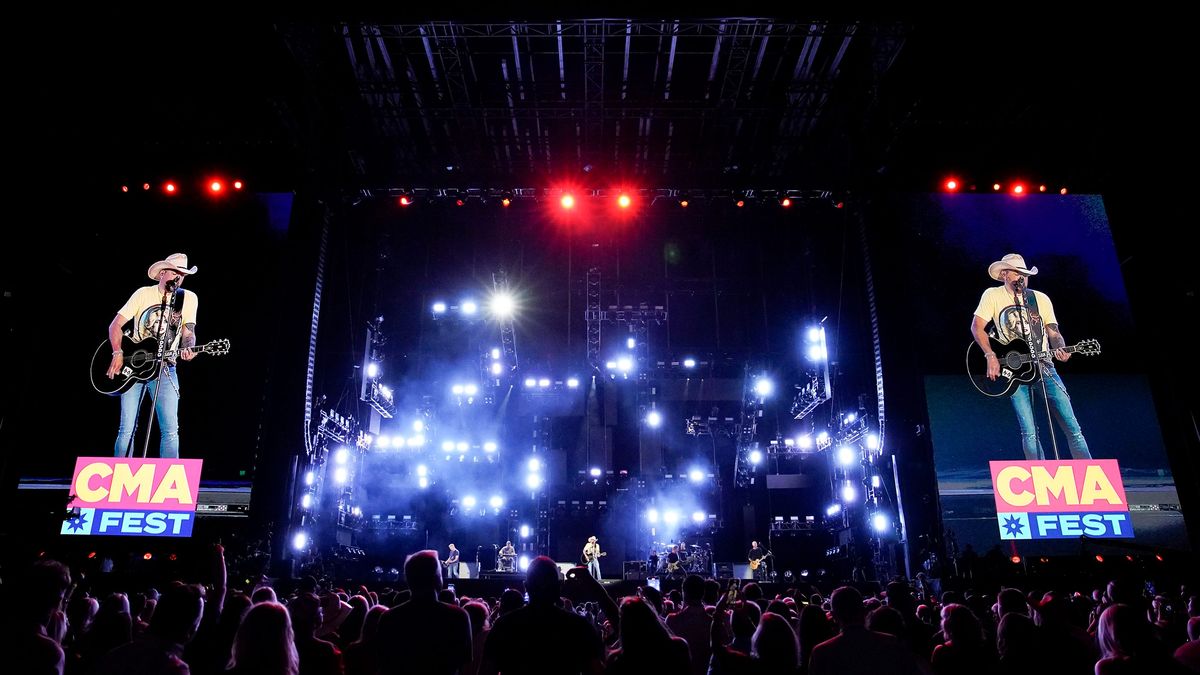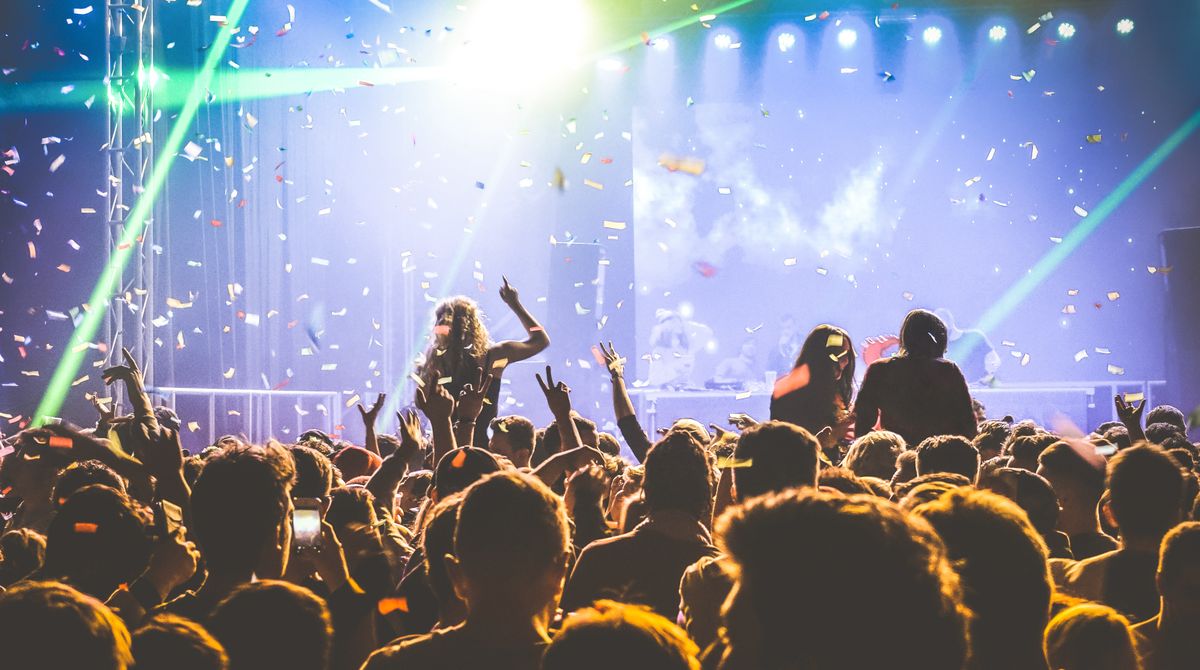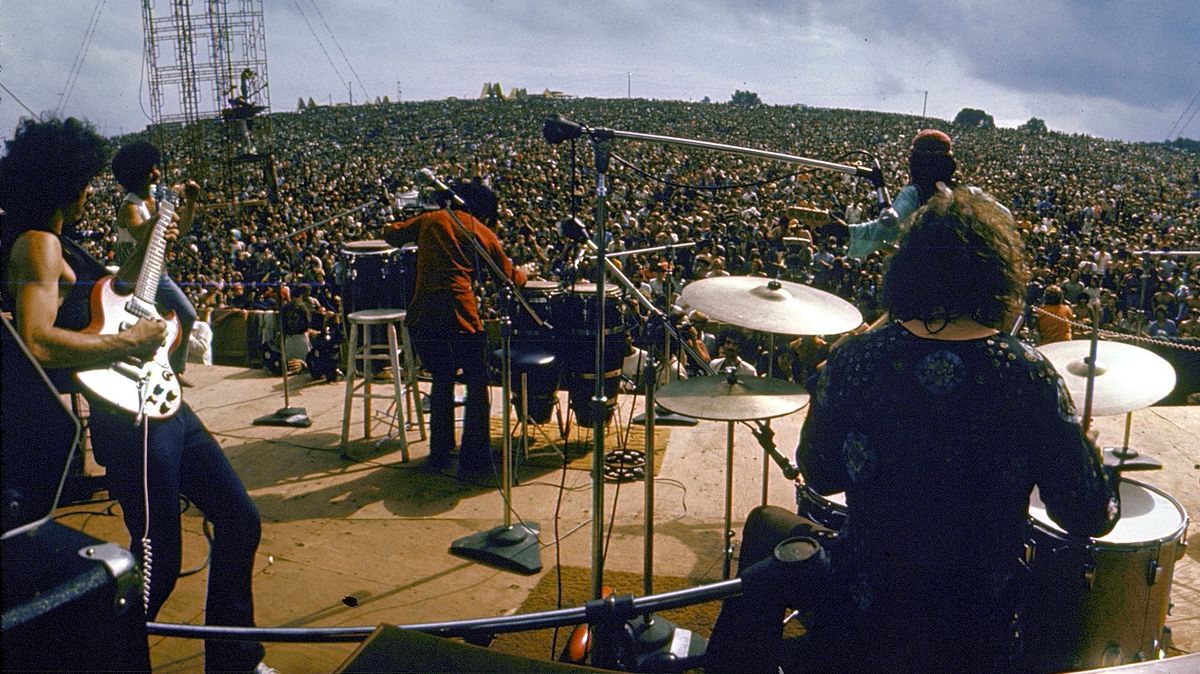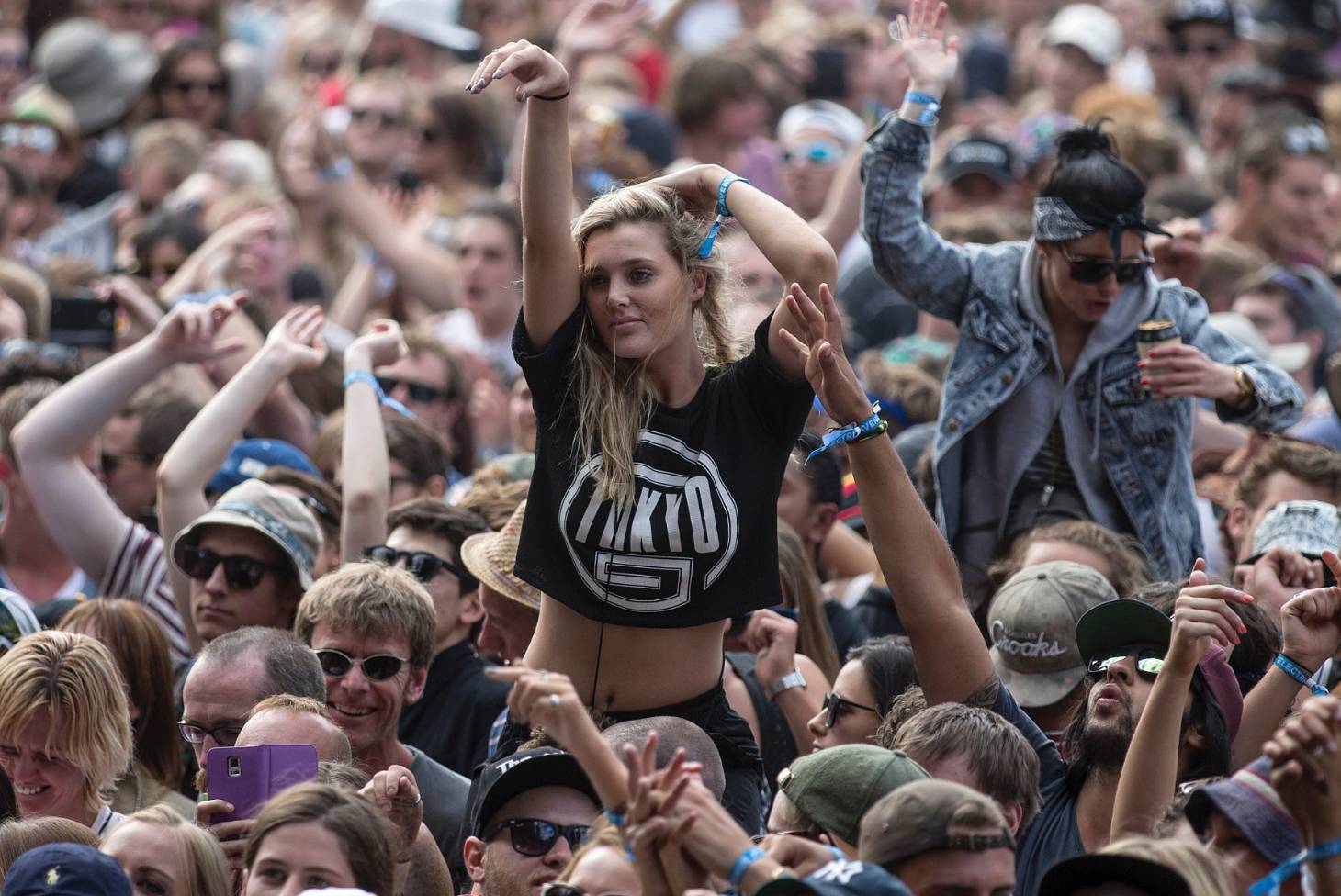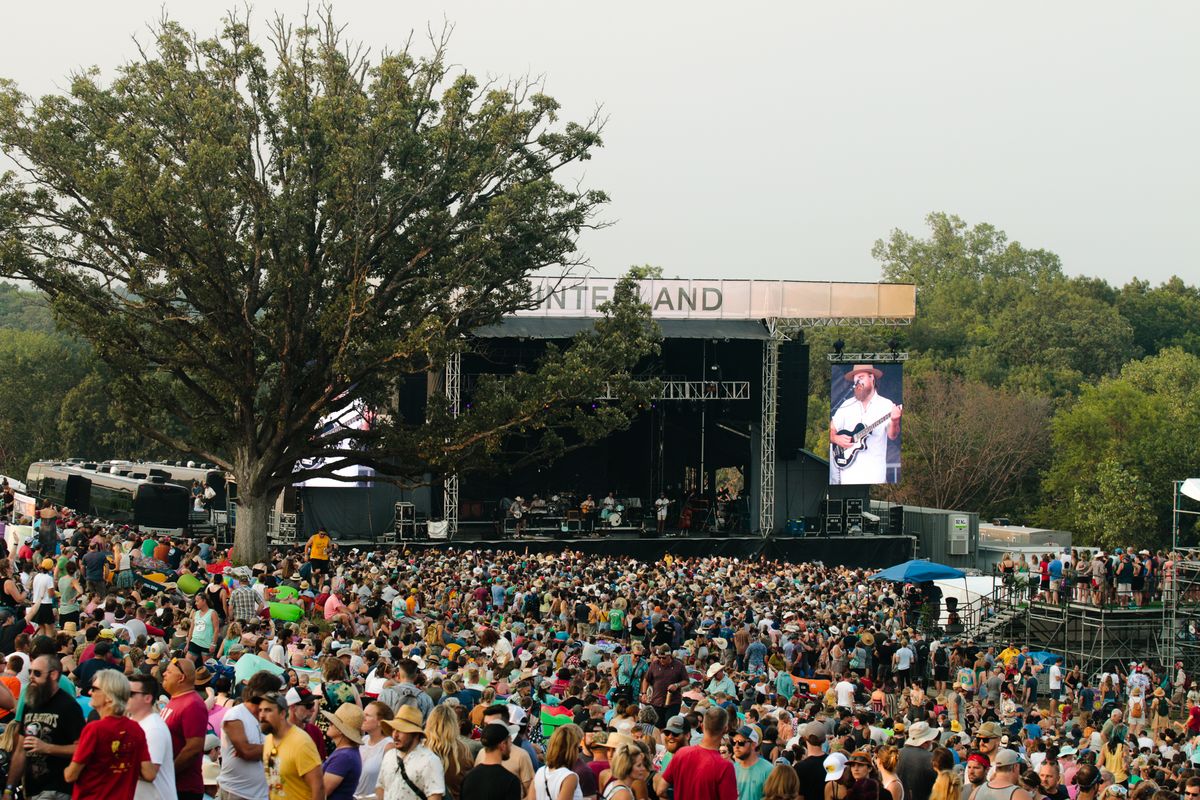Home>Events & Info>Festival>How To Prepare For A Music Festival
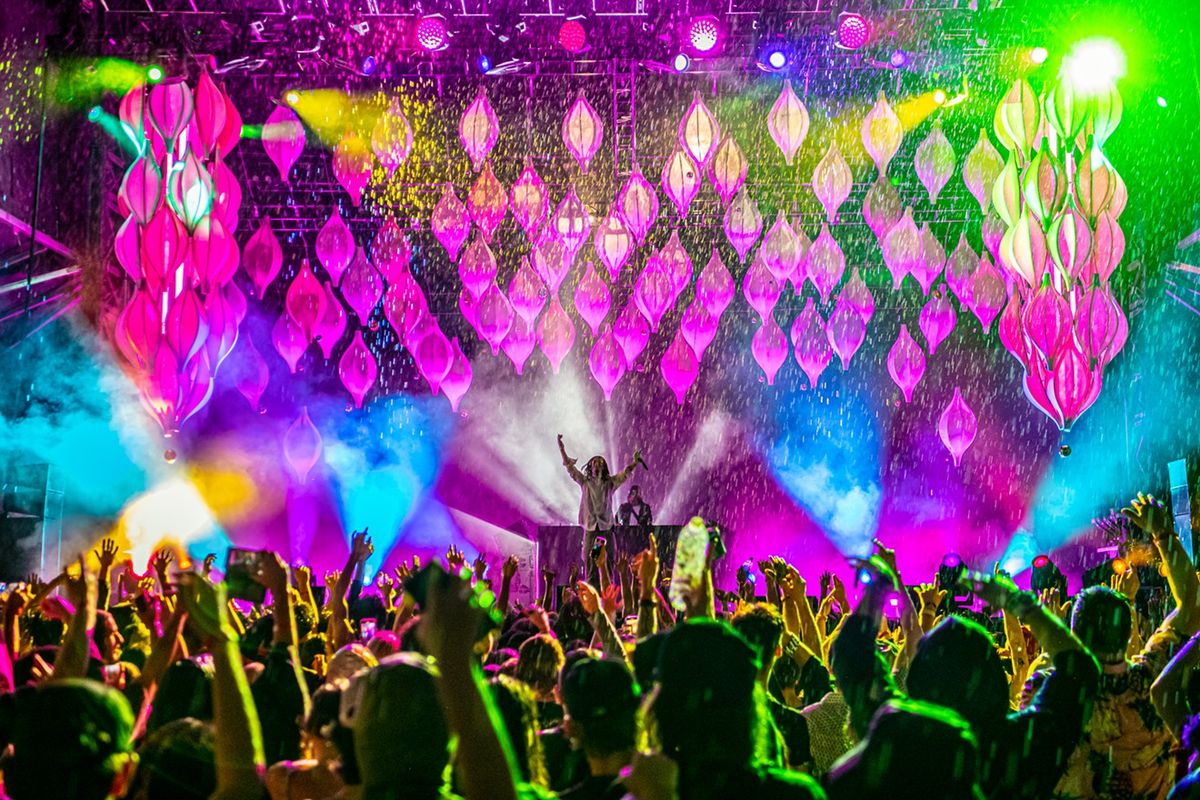

Festival
How To Prepare For A Music Festival
Modified: January 22, 2024
Discover how to prepare for a music festival and make the most of your experience. Get insider tips on packing essentials, staying hydrated, and navigating the festival grounds.
(Many of the links in this article redirect to a specific reviewed product. Your purchase of these products through affiliate links helps to generate commission for AudioLover.com, at no extra cost. Learn more)
Table of Contents
- Introduction
- Choosing the Right Music Festival
- Researching the Festival
- Planning Your Schedule
- Budgeting for the Festival
- Packing Essentials
- Dressing Appropriately
- Organizing Transportation
- Accommodation Options
- Preparing for the Weather
- Staying Hydrated and Nourished
- Bringing the Right Gear
- Ensuring Personal Safety
- Capturing Memories with Photography
- Making a Music Festival Checklist
- Conclusion
Introduction
Music festivals are undoubtedly one of the most exciting and memorable experiences for music lovers. From the pulsating beats to the electrifying performances, festivals offer a unique opportunity to immerse oneself in a sea of melodies and create lasting memories. Whether you are a seasoned festival-goer or a first-timer, proper preparation is key to ensuring a seamless and enjoyable experience.
Choosing the right music festival is the first step to embarking on this incredible journey. With a plethora of options available, it’s essential to identify a festival that aligns with your music preferences and desired atmosphere. Whether you’re into rock, electronic, hip-hop, or folk, there’s a festival out there for you.
Researching the festival is crucial to understanding its unique aspects and features. Look into the lineup of artists, the festival’s history, and any specific themes or activities that may be offered. This will help you gauge if the festival is the right fit for you and ensure that you don’t miss out on any must-see performances.
Once you’ve chosen a festival, it’s time to plan your schedule. Many music festivals feature multiple stages and overlapping performances, making it important to prioritize which artists you want to see. Create a schedule that allows you to catch your favorite acts while leaving room for exploration and discovery.
Of course, attending a music festival comes with its fair share of expenses. Budgeting for the festival is essential to avoid overspending and financial stress. Consider ticket prices, accommodation costs, transportation, food, and any additional expenses. Allocating a specific budget for each category will help you manage your finances effectively.
Choosing the Right Music Festival
With countless music festivals happening around the world, it can be overwhelming to decide which one to attend. Whether you’re a fan of rock, pop, electronic, or any other genre, choosing the right music festival is crucial to make the most of your experience. Here are some factors to consider when selecting a festival:
- Genre and Lineup: Look for festivals that showcase artists and genres that you love. Check out the lineup of performers and see if there are any must-see acts that you don’t want to miss. Consider the variety of music styles on offer to ensure there’s something for everyone in your group.
- Location and Accessibility: Decide whether you want to attend a local festival or if you’re open to traveling to another city or even another country. Consider the accessibility of the festival grounds and the ease of transportation options available.
- Venue and Atmosphere: Research the venue and the overall atmosphere of the festival. Some festivals take place in scenic outdoor locations, while others are held in urban settings. Choose a festival that matches your preferences, whether you prefer a rustic camping experience or a vibrant city atmosphere.
- Duration and Schedule: Consider how long the festival lasts and whether you’re willing to commit to a multi-day event or prefer a one-day festival. Assess the schedule to see if it aligns with your availability and if there are any scheduling conflicts you need to be aware of.
- Activities and Amenities: Check if the festival offers additional recreational activities or amenities, such as workshops, art installations, food vendors, or camping facilities. These extra features can enhance your overall festival experience.
Remember, each music festival has its unique vibe and atmosphere, so choose one that resonates with your preferences. Take the time to explore the festival’s website, watch videos from previous years, and read reviews from attendees to get a sense of what to expect.
Researching the Festival
Before embarking on your music festival adventure, it’s important to conduct thorough research to ensure that you have all the necessary information. Here are some aspects to consider when researching a festival:
- Lineup: Take a close look at the festival’s lineup of artists and bands. Identify the headliners, supporting acts, and up-and-coming artists that you are interested in seeing. Research their music and performances to get an idea of what to expect.
- Genre and Diversity: Understand the festival’s genre focus and the breadth of musical styles represented. Some festivals specialize in a specific genre, while others offer a diverse range of music. This will help you determine if the festival aligns with your musical preferences.
- Previous Editions: Look into the history and past editions of the festival. Learn about the overall atmosphere, the quality of the performances, and any unique features or highlights. This will give you insights into what to expect and help you gauge your excitement level.
- Reviews and Ratings: Read reviews and ratings from previous attendees to get a sense of their experiences. Look for feedback on aspects like organization, sound quality, facilities, and overall satisfaction. This will help you make an informed decision about whether the festival meets your expectations.
- Additional Activities: Find out if the festival offers any additional activities or attractions beyond the music performances. Some festivals feature workshops, art installations, food and beverage options, or even carnival rides. Consider if these extra experiences add value to your festival experience.
- COVID-19 Health and Safety Measures: In the current landscape, it’s important to research any health and safety measures the festival has in place to mitigate the risk of COVID-19. Check if the festival requires vaccination proof, regular testing, or social distancing protocol. Understanding these measures will help you plan and enjoy the festival with peace of mind.
Utilize the festival’s official website and social media channels as valuable resources for accurate and up-to-date information. Pay attention to announcements, updates, and any FAQs that may address common concerns or provide important information.
By conducting thorough research, you’ll have a clearer idea of what to expect from the festival, allowing you to plan and prepare accordingly. This will contribute to a more enjoyable and stress-free experience, ensuring that you make the most of your time at the festival.
Planning Your Schedule
Once you have chosen the music festival you want to attend and have a good understanding of the lineup, it’s time to plan your schedule. With multiple stages and overlapping performances, careful planning will ensure that you don’t miss out on your favorite artists and allow you to discover new ones along the way. Here are some tips to help you plan your festival schedule:
- Make a Must-See List: Identify the artists you absolutely do not want to miss and prioritize them in your schedule. These are the acts that you are most excited about and will help you plan your other activities around them.
- Explore the Lineup: Take time to explore the rest of the lineup beyond the headliners. Listen to the music of lesser-known artists and see if any catch your interest. This is a great opportunity to discover new music and expand your musical horizons.
- Consider Conflicts: There may be times when two or more artists you want to see are performing at the same time on different stages. Take note of these conflicts and make a decision based on your personal preferences. Consider factors such as popularity, stage production, and personal connection to the artists.
- Plan for Breaks: Festivals can be intense, with non-stop music and activities. It’s important to plan for breaks in your schedule to rest, refuel, and recharge. Consider allowing some downtime to explore the festival grounds, enjoy the food vendors, or simply relax and take in the atmosphere.
- Be Flexible: While it’s important to have a rough schedule, be open to last-minute changes and spontaneous decisions. Festivals often have surprise guests, impromptu performances, or special activities that may capture your interest. Embrace the unpredictability and go with the flow.
- Create a Physical or Digital Schedule: Once you have your schedule planned, create a physical or digital schedule that you can refer to during the festival. Some festivals offer mobile apps or downloadable schedules that you can use to stay organized and keep track of your selected performances.
Remember, the goal of planning your schedule is to strike a balance between seeing your favorite acts and embracing the festival experience in its entirety. Leave room for exploration, discovery, and unexpected moments that may become some of your most cherished festival memories.
Budgeting for the Festival
Attending a music festival can be an exhilarating experience, but it’s important to be mindful of your budget to avoid any financial strain. From ticket prices to accommodation, food, transportation, and additional expenses, budgeting is essential to ensure you have a financially stress-free festival experience. Here are some tips for effectively budgeting for a music festival:
- Research Costs: Start by researching the costs associated with the festival. Check the ticket prices, camping or accommodation fees, and any additional costs for parking, shuttle services, or VIP access. Take note of any early bird discounts or special deals that can help you save money.
- Create a Budget: Determine how much you are willing to spend on the festival as a whole. Allocate specific amounts for different categories such as tickets, accommodation, transportation, food, merchandise, and any other expenses you anticipate. Stick to this budget as much as possible to avoid overspending.
- Shared Costs: If you are attending the festival with friends or a group, consider sharing costs to reduce individual expenses. This can include splitting the cost of accommodation, transportation, or even preparing and sharing meals together.
- Food and Drinks: Festival food and drinks can quickly add up, so plan and budget accordingly. If allowed, consider bringing some of your own snacks and water to save money. Research the food options available at the festival and set aside a specific amount for meals and drinks.
- Transportation: Evaluate different transportation options and choose the most cost-effective one. If the festival is within driving distance, consider carpooling with friends to share fuel costs. If you’re flying, look for discounted airfare or consider alternative modes of transportation like buses or trains.
- Accommodation: Assess the various accommodation options available and choose one that fits within your budget. Camping is often the most affordable choice, but if you prefer a more comfortable stay, look for nearby hotels, vacation rentals, or hostels. Book early to secure the best rates.
- Additional Expenses: Don’t forget to account for any additional expenses such as festival merchandise, lockers, phone charging stations, or any off-site activities you may want to participate in. Set aside some extra funds for these miscellaneous costs.
Remember, it’s essential to be realistic with your budget and avoid overspending. Stick to your allocated amounts, prioritize your expenses, and be mindful of any impulse purchases. By planning and budgeting effectively, you can enjoy the festival without worrying about financial strain and fully immerse yourself in the experience.
Packing Essentials
Properly packing for a music festival is an important aspect of ensuring a comfortable and enjoyable experience. Whether you’re camping on site or staying in nearby accommodations, having the right essentials will help you make the most of the festival. Here are some key items to include when packing for a music festival:
- Valid ID and Tickets: Always remember to bring a valid form of identification and your festival tickets. These are essential for entering the festival grounds and verifying your identity.
- Comfortable Clothing: Opt for loose-fitting and breathable clothing that is suitable for the weather conditions of the festival. Pack essentials like t-shirts, shorts, light jackets, comfortable shoes, and extra socks. Consider bringing a rain poncho or waterproof jacket in case of unexpected weather changes.
- Personal Hygiene Items: Pack travel-sized toiletries such as toothbrush, toothpaste, deodorant, sunscreen, and hand sanitizer. Festivals often have limited or communal bathroom facilities, so having your personal hygiene items will ensure cleanliness and comfort.
- Sleeping Gear: If you’re camping, bring a tent, sleeping bag, air mattress or sleeping pad, and a pillow for a good night’s rest. Consider packing earplugs and an eye mask to block out noise and light.
- Portable Charger and Electronics: Festival days can be long, so having a portable charger for your phone or other electronic devices is essential to keep them powered throughout the day. Don’t forget to bring charging cables and any other necessary electronics like a camera or Bluetooth speaker.
- Water Bottle and Snacks: Staying hydrated is crucial during a festival, so pack a reusable water bottle to refill throughout the day. Bringing your own snacks will also save you money and keep you energized between meals.
- Essential Medications: If you have any required medications, be sure to pack them in their original containers and bring enough for the duration of the festival. It’s also wise to carry a small first-aid kit with band-aids, pain relievers, and any other personal medical supplies.
- Cash and Cards: It’s important to have both cash and cards with you to cover any expenses that may not accept card payments. Carry a small amount of cash for food vendors, merchandise, or any other on-site purchases.
- Other Miscellaneous Items: Consider bringing a portable chair or blanket to sit on during performances, a hat or cap to protect yourself from the sun, sunglasses, and a backpack or bag to carry all your essentials. Don’t forget to pack a good attitude and a sense of adventure!
When packing for a music festival, aim to pack light and only bring the essentials. Consider the festival’s rules and regulations regarding prohibited items to avoid any hassles at the entrance. By being prepared and packing smart, you’ll have everything you need to enjoy the festival to the fullest.
Dressing Appropriately
Choosing the right attire for a music festival is not only about looking fashionable but also ensuring that you remain comfortable throughout the event. The key is to strike a balance between style and practicality. Here are some tips to help you dress appropriately for a music festival:
- Consider the Weather: Check the weather forecast for the duration of the festival and plan your outfits accordingly. If it’s going to be hot and sunny, opt for lightweight and breathable clothing. If there’s a chance of rain or cooler temperatures, bring layers and a waterproof jacket.
- Choose Comfortable Shoes: Comfortable footwear is essential for a music festival, as you’ll be on your feet for long periods. Opt for closed-toe shoes or sneakers that provide support and are suitable for walking on various terrains. Avoid wearing heels or uncomfortable shoes that may hinder your mobility.
- Dress in Layers: Festival temperatures can fluctuate throughout the day, so dressing in layers allows you to adjust your clothing accordingly. Pack a light jacket, cardigan, or hoodie that you can easily tie around your waist or carry in a backpack.
- Wear Sun Protection: Protect yourself from the sun’s harmful rays by wearing a wide-brimmed hat, sunglasses, and sunscreen. This will help prevent sunburns and keep you comfortable under the sun.
- Express Your Style: Music festivals are a great opportunity to showcase your personal style. Embrace your creativity and dress in a way that reflects your personality. Consider wearing patterns, vibrant colors, unique accessories, or even face paint to enhance your festival look.
- Bring a Backpack or Crossbody Bag: Opt for a secure and convenient bag to carry your essentials. A backpack or a crossbody bag leaves your hands free and ensures that your belongings are safe. Choose a bag with multiple compartments to keep items organized.
- Pack a Change of Clothes: It’s a good idea to pack a spare set of clothes in case of any unexpected weather changes or if you get wet from rain or mud. This allows you to stay comfortable and dry throughout the festival.
- Be Mindful of Festival Guidelines: Familiarize yourself with the festival’s dress code and guidelines. Some festivals may have specific rules regarding costumes, nudity, or offensive clothing. Adhere to these guidelines to ensure a positive and inclusive festival atmosphere.
Remember, while fashion is important, comfort should be your top priority when dressing for a music festival. Choose clothing and footwear that will allow you to move freely, stay cool, and enjoy the festival experience to the fullest.
Organizing Transportation
Transportation plays a crucial role in ensuring a smooth and hassle-free experience when attending a music festival. Whether you’re traveling to a local festival or embarking on a journey to a distant location, organizing transportation in advance is essential. Here are some tips to help you navigate the transportation aspect of attending a music festival:
- Public Transportation: Check if there are any public transportation options available to get to the festival venue. Look into bus or train schedules and routes that can take you directly to or near the festival grounds. This can be a convenient and cost-effective option for transportation.
- Carpooling: If you’re attending the festival with friends or fellow festival-goers, consider carpooling. This not only helps reduce the environmental impact but also allows you to split the cost of gas and parking fees. Plan your carpooling arrangements in advance to ensure everyone is on the same page.
- Ridesharing Platforms: Utilize ridesharing platforms like Uber or Lyft to get to and from the festival. These services offer convenience and flexibility, allowing you to be dropped off and picked up at the festival entrance. However, be aware that surge pricing may be in effect during peak festival times.
- Shuttle Services: Some festivals offer shuttle services from designated pick-up points to the festival grounds. These organized shuttles can be a convenient and reliable transportation option, saving you the hassle of parking and navigating traffic.
- Driving: If you decide to drive to the festival, plan your route in advance and familiarize yourself with the parking options available. Some festivals offer on-site parking for a fee, while others may have designated off-site parking areas with shuttle services to transport attendees to the festival grounds. Consider carpooling to share the costs and reduce your environmental impact.
- Bike or Walk: If the festival venue is within a reasonable distance, consider biking or walking to the festival. This not only provides a convenient transportation option but also allows you to avoid traffic and enjoy the outdoors.
- Plan for Traffic and Delays: Keep in mind that traffic congestion and delays are common during festival weekends. Allow for extra time in your travel plans to account for any unforeseen delays. Stay up-to-date with traffic alerts and plan alternative routes if necessary.
Researching and organizing transportation in advance will help you avoid any last-minute stress or complications. Consider the pros and cons of each transportation option and choose the one that best suits your needs and budget. By taking care of the transportation aspect, you can focus on enjoying the festival without any transportation-related worries.
Accommodation Options
Choosing the right accommodation for a music festival is an important decision that can greatly impact your overall festival experience. While some festivals offer on-site camping options, others may require you to find nearby accommodations. Here are some accommodation options to consider when planning your festival stay:
- On-Site Camping: Many music festivals provide on-site camping facilities, allowing you to immerse yourself in the festival atmosphere. Check if the festival offers camping options and whether they provide amenities such as tent rentals, showers, restrooms, and designated cooking areas. Camping can be an affordable and convenient option, as it gives you easy access to the festival grounds.
- Off-Site Camping: If on-site camping is not available or not your preference, look for off-site camping areas or RV parks near the festival venue. These locations usually offer a range of amenities and facilities that can enhance your camping experience. Be sure to book early, as these spots tend to fill up quickly during festival weekends.
- Hotels and Resorts: If you prefer a more comfortable and luxurious stay, consider booking a hotel or resort near the festival venue. This option provides the convenience of a private room, comfortable amenities, and proximity to nearby restaurants and attractions. However, be mindful that hotel rates during festival weekends may be higher than usual, so book well in advance to secure the best deals.
- Vacation Rentals: Check if there are vacation rentals, such as houses, apartments, or villas available near the festival. Websites and apps like Airbnb or Vrbo offer a wide range of options that can accommodate individuals or groups. This allows for more space, privacy, and the flexibility to cook your meals if desired.
- Hostels and Guesthouses: For budget-conscious festival-goers, consider staying in hostels or guesthouses. These options often provide shared dormitory-style rooms or private rooms at affordable rates. Hostels can also offer a social atmosphere, allowing you to meet fellow festival attendees from around the world.
- Couchsurfing and Homestays: If you’re open to unique and local experiences, consider couchsurfing or homestay options. These platforms connect travelers with local hosts who offer a spare room or couch to stay on. It’s a great way to meet locals, get insider tips, and potentially make new friends during your festival experience.
When choosing accommodation, consider factors such as proximity to the festival venue, comfort, cost, and desired amenities. It’s important to book your accommodation well in advance, as prime options tend to sell out quickly during festival seasons. Research and read reviews to ensure that you choose a reliable and reputable accommodation option.
Ultimately, the right accommodation choice will provide you with a comfortable place to rest and rejuvenate, allowing you to fully enjoy the music festival experience.
Preparing for the Weather
When attending a music festival, it’s essential to be well-prepared for the weather conditions. Weather can greatly impact your comfort and overall experience, so it’s important to plan and pack accordingly. Here are some tips to help you prepare for the weather during a music festival:
- Check the Forecast: Keep a close eye on the weather forecast leading up to the festival. Check for any changes or updates as the festival dates approach. This will give you an idea of what to expect and help you plan your clothing and gear accordingly.
- Be Prepared for Rain: Rain is a possibility during outdoor festivals, so always be prepared with rain gear. Pack a lightweight, waterproof rain jacket or poncho to keep you dry. Consider bringing rain boots or waterproof shoes to navigate muddy grounds. Additionally, pack a few large garbage bags that can be used as makeshift rain covers for your belongings or to sit on if the ground is wet.
- Sun Protection: If you’re attending a festival in a sunny location, protect yourself from the sun’s rays. Wear sunscreen with a high SPF, a wide-brimmed hat, and sunglasses to shield your skin and eyes. Consider bringing a portable shade canopy or umbrella for additional sun protection.
- Layer Your Clothing: Festivals often have fluctuating temperatures, especially during the day and night. Dressing in layers allows you to adapt to changing weather conditions. Start with a lightweight base layer, add a sweater or jacket for cooler moments, and have a lightweight option like a t-shirt for warmer periods. This way, you can easily adjust your clothing throughout the day.
- Stay Hydrated: Hot weather can lead to dehydration, so it’s crucial to stay hydrated during the festival. Bring a reusable water bottle and refill it regularly. Consider bringing electrolyte-enhanced drinks to replenish lost minerals as well.
- Protect Your Feet: Festival grounds can be dusty, muddy, or rocky, so it’s important to wear appropriate footwear. Choose closed-toe shoes or comfortable sandals that provide support and protection for your feet. Avoid wearing new or uncomfortable shoes to prevent blisters and discomfort.
- Pack Extra Clothing: Having a spare set of clothes is always a good idea, regardless of the weather. If the weather changes unexpectedly or if your clothes get wet or dirty, you’ll have clean and dry options to change into.
- Be Mindful of Extreme Conditions: In cases of extreme weather conditions, such as high heat or severe storms, it’s essential to prioritize your safety. Follow the instructions and guidance provided by festival organizers and seek shelter if necessary. Stay informed about emergency procedures and evacuation plans.
By being prepared for various weather conditions, you’ll be able to adapt and enjoy the festival regardless of what Mother Nature brings. Remember to stay informed, stay comfortable, and prioritize your well-being throughout the event.
Staying Hydrated and Nourished
Staying hydrated and properly nourished is paramount to ensuring your well-being and enjoyment at a music festival. With long hours of dancing, walking, and being exposed to the elements, it’s important to prioritize your health and energy levels. Here are some tips to help you stay hydrated and nourished during a music festival:
- Drink Plenty of Water: Hydration is key, especially during hot and sunny festival days. Carry a reusable water bottle and drink water regularly to quench your thirst and replenish lost fluids. Look out for water stations provided by the festival organizers to refill your bottle throughout the day.
- Avoid Excessive Alcohol and Caffeine: While it may be tempting to indulge in alcoholic beverages or caffeinated drinks, they can dehydrate your body. Consume these beverages in moderation and balance them with plenty of water to stay hydrated.
- Eat Regular and Balanced Meals: Festivals can be physically demanding, so it’s important to fuel your body with nutritious food. Seek out food vendors that offer a variety of options, including fruits, vegetables, whole grains, and protein. Aim for balanced meals that provide sustained energy throughout the day.
- Pack Healthy Snacks: In addition to regular meals, pack healthy and convenient snacks to keep yourself nourished between sets. Granola bars, nuts, dried fruit, or protein bars are great options to keep in your bag. These snacks provide quick and easy sustenance to keep your energy levels up.
- Consider Dietary Restrictions: If you have dietary restrictions or food allergies, plan ahead and pack snacks or meals that accommodate your needs. Many festivals now offer a variety of food options to cater to different dietary preferences, so check the festival’s website for information on special dietary offerings.
- Stay Mindful of Food Safety: With the large number of people at festivals, it’s important to practice good food safety hygiene. Ensure that food vendors follow proper sanitation practices, and be cautious of perishable items left out in the sun for too long. Trust your instincts and opt for trustworthy food sources.
- Be Mindful of Heat Exhaustion: In hot weather, heat exhaustion is a real concern. Symptoms include dizziness, fatigue, nausea, and excessive sweating. Stay hydrated, seek shade when needed, and take breaks in cool areas to prevent overheating. If you or someone around you experience severe symptoms, seek medical assistance immediately.
- Rest and Listen to Your Body: It’s easy to get caught up in the excitement of a music festival, but it’s important to listen to your body’s needs. Take breaks when you feel tired, find shaded areas to relax, and allow yourself time to rest and recharge.
Remember, staying hydrated and nourished will ensure that you have the energy and stamina to fully enjoy the music festival experience. Prioritize your well-being and take care of yourself so that you can make the most of every moment.
Bringing the Right Gear
Bringing the right gear to a music festival can greatly enhance your experience and keep you prepared for various situations. From essential items to helpful accessories, here are some recommendations for the gear you should consider bringing to a music festival:
- Backpack or Fanny Pack: A comfortable and secure backpack or fanny pack is essential for carrying your belongings throughout the festival. Look for one with multiple compartments to keep your gear organized and easily accessible.
- Portable Phone Charger: Keeping your phone charged is crucial for staying connected and capturing memories. Invest in a portable phone charger or power bank to ensure your devices stay powered throughout the festival.
- Earplugs: Music festivals can be loud, and protecting your hearing is important. Bring a pair of high-quality earplugs to reduce the risk of hearing damage and fatigue while still being able to enjoy the music.
- Sun Protection: Pack sun protection essentials like sunscreen, sunglasses, and a wide-brimmed hat to shield your skin and eyes from the sun’s rays. These items will help prevent sunburns and ensure your comfort during the festival.
- Blanket or Towel: Having a lightweight blanket or towel is practical for sitting and resting during the festival. It can also serve as a barrier between you and the ground when sitting on grass or muddy areas.
- Reusable Water Bottle: Staying hydrated is essential for an enjoyable festival experience. Bring a reusable water bottle to refill throughout the day and minimize waste. Look for bottles with insulation to keep your water cool for longer periods.
- Mini First Aid Kit: It’s always a good idea to have a basic first aid kit on hand. Include items such as band-aids, pain relievers, antiseptic wipes, and any necessary medications. This will come in handy for minor injuries or ailments.
- Light Layers or Jacket: Even during warm days, festivals can get chilly at night. Pack a lightweight jacket or layers that you can easily carry in your bag or tie around your waist. This will keep you comfortable as temperatures fluctuate.
- Portable Foldable Chair: If allowed, bringing a portable and lightweight foldable chair adds comfort during the festival. It provides a convenient and comfortable seating option, especially during longer performances or when resting.
- Camera or Smartphone for Photos: Capture and preserve memories by bringing a camera or smartphone with a good-quality camera. Take photos of your favorite performances, friends, and the festival atmosphere. Don’t forget to have enough storage space or additional memory cards available.
- Costumes or Accessories: Some festivals encourage attendees to dress up or wear costumes. Consider bringing fun accessories or items that match the festival theme. It’s a great way to express your creativity and enhance the overall festival vibe.
While these are some general gear recommendations, be sure to check the specific rules and guidelines of the festival you’re attending. Some festivals have restrictions on certain items or provide additional recommendations. By bringing the right gear, you’ll be well-prepared to fully enjoy the festival and make the most of your music-filled experience.
Ensuring Personal Safety
While attending a music festival is an exciting experience, it’s important to prioritize your personal safety throughout the event. By taking some precautionary measures, you can ensure a safe and enjoyable festival experience. Here are some tips to help you stay safe at a music festival:
- Stay Aware of Your Surroundings: Be mindful of your surroundings and stay aware of the people around you. Keep an eye out for any suspicious or uncomfortable situations and trust your instincts.
- Stay with Friends or in Groups: Attend the festival with friends or a group whenever possible. Stick together and establish a meeting point in case you get separated. This will help ensure your safety and provide a support system throughout the festival.
- Secure Your Belongings: Keep your belongings secure at all times. Use locks on your tent or use lockers if available. Avoid carrying large amounts of cash or valuable items that may attract unwanted attention.
- Stay Hydrated and Nourished: Proper hydration and nutrition are essential for your well-being and personal safety. Drink plenty of water, eat regular meals, and take breaks when needed. This will help prevent dehydration, fatigue, and other health-related concerns.
- Utilize Festival Resources: Familiarize yourself with the festival layout and the locations of medical tents, security stations, and information booths. Carry a festival map to navigate the grounds smoothly and know where to seek help if needed.
- Follow Festival Guidelines and Rules: Pay attention to the festival’s guidelines and rules. Adhere to any safety protocols, such as bag size restrictions or prohibited items. Familiarize yourself with emergency procedures and evacuation plans, and be prepared to act accordingly if the need arises.
- Establish a Meeting Point: Choose a designated meeting point within the festival grounds in case you get separated from your group. This will ensure that you can easily find each other if communication becomes challenging.
- Have Emergency Contacts Handy: Keep a list of important emergency contacts readily available, both in your phone and on a physical piece of paper. Include contact numbers for local emergency services, your friends or group members, and any necessary medical information.
- Use Reliable Transportation: If using transportation services like rideshares, only book through reputable platforms and double-check the driver’s information and vehicle details. Avoid getting into unmarked cars or accepting rides from strangers.
- Trust Your Intuition: Your instincts are a powerful tool for personal safety. If something or someone makes you feel uncomfortable or unsafe, remove yourself from the situation and seek assistance from festival staff or security personnel.
Remember, personal safety should always be a top priority when attending a music festival. By taking proactive measures and staying vigilant, you can ensure a safe and memorable festival experience.
Capturing Memories with Photography
A music festival is a vibrant and memorable experience, and capturing those moments through photography can help preserve those memories for years to come. Whether you’re a seasoned photographer or just enjoy taking snapshots with your smartphone, here are some tips for capturing memories at a music festival:
- Know the Rules: Familiarize yourself with the festival’s photography policy and any restrictions on professional equipment or camera accessories. Respect the rules and guidelines provided by the festival organizers to ensure a positive experience for everyone.
- Use the Right Equipment: Choose the camera gear that suits your style and needs. While a smartphone camera can capture great shots, a digital camera with manual controls offers more flexibility and quality. Consider bringing extra memory cards and batteries to avoid running out of storage and power during the festival.
- Experiment with Different Shots: Don’t be afraid to get creative with your photography. Experiment with different angles, perspectives, and compositions. Capture wide shots to showcase the energy and scale of the festival, as well as close-ups to capture the emotions and details of the performances.
- Capture the Atmosphere: Music festivals are not just about the performances; they are about the overall atmosphere and energy. Capture candid shots of festival-goers dancing, interacting, and enjoying themselves. These photos will help transport you back to the vibrant atmosphere of the festival.
- Photograph the Performances: Music festivals provide a unique opportunity to capture live performances. Make use of the festival’s access rules and stage positioning to capture dynamic shots of the artists on stage. Experiment with different settings and techniques to capture the energy and mood of the performances.
- Document the Small Details: Look for the small details that make the festival special. This could be vibrant festival art installations, unique fashion choices of attendees, or special moments happening off the main stages. Don’t forget to capture these elements that contribute to the overall festival experience.
- Focus on People and Emotions: Music festivals bring people together, and the emotions on display are a significant part of the experience. Capture candid shots of people singing, dancing, smiling, and expressing their joy. These photos can convey the sense of connection and celebration that defines a music festival.
- Tell a Story with Your Photos: Arrange your photos in a way that tells a narrative of your festival experience. Showcase the journey from the excitement of arrival to the highlights of performances and the camaraderie of the crowd. Use a combination of wide angles, close-ups, and candid shots to create a visual story.
- Engage with the Performers and Crowd: Interact with the performers and fellow festival-goers. Engaging with them can lead to unique photo opportunities and a deeper connection to the festival experience. Obtain permission before photographing individuals and be respectful of their personal space.
- Enjoy the Moments: While it’s important to capture memories through photography, remember to also live in the moment and enjoy the festival experience. Strike a balance between capturing photos and immersing yourself in the performances and the energy around you.
Photography at a music festival allows you to document the excitement, energy, and beauty of the event. By following these tips, you can capture and relive the memories of the festival for years to come.
Making a Music Festival Checklist
Preparing for a music festival can feel overwhelming with so many things to consider. To stay organized and ensure you don’t forget anything important, creating a music festival checklist is essential. Here are some items you should include on your festival checklist:
- Tickets: Ensure you have your festival tickets or wristbands purchased and ready to go. Double-check the festival’s guidelines on ticket format and any required identification for entry.
- Identification: Carry a valid form of identification, such as a driver’s license or passport. This is often required for age verification and to match the name on your tickets.
- Camping Gear: If camping on-site, include essentials like a tent, sleeping bag, air mattress or sleeping pad, camping chairs, and any necessary camping accessories.
- Clothing: Pack comfortable and weather-appropriate clothing, including t-shirts, shorts, a light jacket, comfortable shoes, extra socks, and rain gear. Don’t forget accessories like hats and sunglasses for sun protection.
- Toiletries: Bring travel-sized toiletries such as toothbrush, toothpaste, deodorant, sunscreen, hand sanitizer, and any personal hygiene items you use regularly.
- Food and Water: Have a supply of snacks and non-perishable food items to keep you energized throughout the festival. Include a reusable water bottle to stay hydrated and any essential medications.
- Technology and Accessories: Pack your smartphone, portable charger, charging cables, and any necessary electronic devices for communication and capturing memories. Include headphones, earplugs, and a camera for photography.
- Money and Valuables: Bring a mix of cash, cards, and identification for on-site purchases, food vendors, and emergency use. Consider keeping valuables in a secure location or using a money belt or pouch for added safety.
- Essential Documents: Carry any necessary documents, such as printed festival tickets, identification, and emergency contact information.
- Health and Safety: Pack a mini first aid kit with band-aids, pain relievers, and any necessary medications. Include hand sanitizer, wet wipes, and masks for personal hygiene and health precautions.
- Entertainment and Comfort: Include items like a blanket or towel for sitting, a small portable speaker, books, playing cards, or any other entertainment options you enjoy during downtime.
- Additional Items: Consider any festival-specific items such as glow sticks, colorful attire, flags or totems to locate your group, a festival map or schedule, and a small backpack or fanny pack to carry your essentials.
Customize the checklist based on your personal needs and preferences. Double-check the festival’s guidelines, rules, and any prohibited items to ensure compliance. Use the checklist as a guide to ensure you have everything packed and ready for a seamless music festival experience.
Conclusion
Attending a music festival is an exhilarating experience that allows you to immerse yourself in the magic of live music, vibrant atmosphere, and a sense of community. By following the tips and recommendations in this guide, you can better prepare yourself for the festival and maximize your enjoyment. From choosing the right festival to researching the lineup, planning your schedule, and packing the essentials, each step contributes to a seamless and unforgettable experience.
Remember to prioritize your safety and well-being by staying hydrated, nourished, and aware of your surroundings. Capture the memories through photography, but don’t forget to also fully immerse yourself in the live performances and interactions with fellow festival-goers.
As you prepare for the festival, keep in mind that unexpected situations may arise. Flexibility and an open mindset will help you embrace and adapt to any changes or challenges that may come your way. Stay positive and cherish each moment, making the most of the opportunities to connect with the music, artists, and fellow music lovers.
Lastly, remember that the ultimate goal of attending a music festival is to have fun and create lasting memories. Embrace the energy, let go of any worries, and allow yourself to be fully present in the experience. Enjoy the music, dance like no one’s watching, and soak in the magic of the music festival atmosphere. Have an incredible time, and may your festival experience be nothing short of extraordinary!

